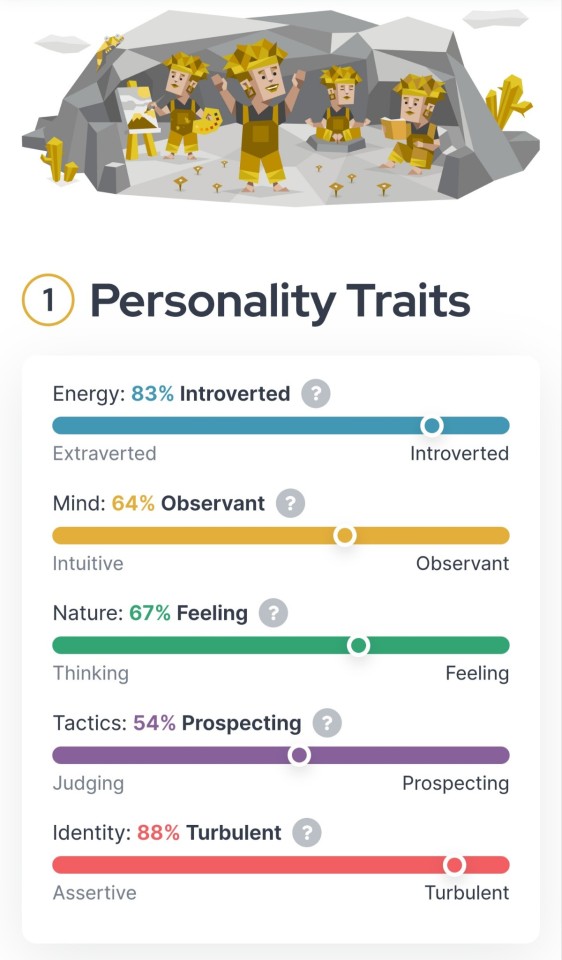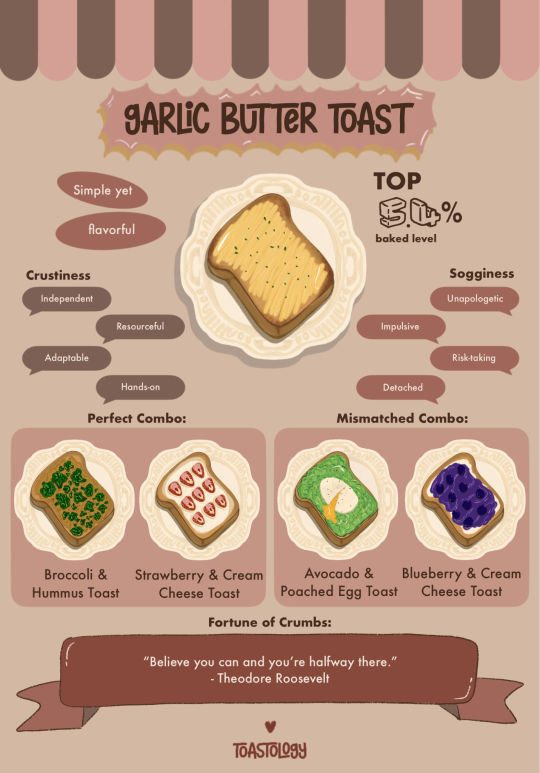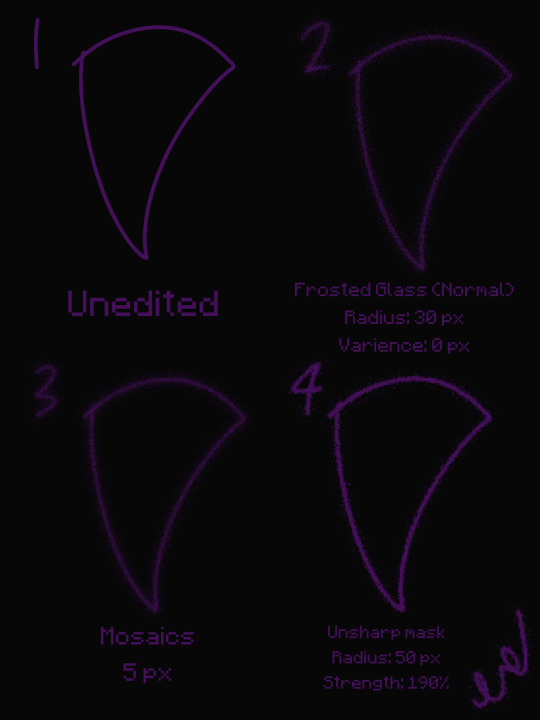#Japanese Language and Proficiency Test
Explore tagged Tumblr posts
Text
Knowledge of the Japanese Language Proficiency Test (JLPT) and NAT Scoring Systems
The Japanese Language Proficiency Test (JLPT) and NAT exams are two of the most widely recognized language proficiency tests for Japanese language learners. Both exams are designed to evaluate the language skills of non-native Japanese speakers, but they have distinct scoring systems that can be confusing for test-takers. In this article, we'll delve into the details of the Japanese Language Proficiency Test (JLPT) and NAT scoring systems, helping you understand how to interpret your scores and set realistic goals for your language learning journey.
JLPT Scoring System
The Japan Foundation and Japan Educational Exchanges and Services (JEES) administer the JLPT, which is available in five levels: N1, N2, N3, N4, and N5. The test evaluates language skills in three areas: language knowledge (vocabulary), reading, and listening. The scoring system is based on a scale of 0 to 180 points, with 100 points required to pass.
N1: Advanced level, requiring a high degree of language proficiency (100–180 points)
N2: Upper-intermediate level, requiring a good command of Japanese (100–180 points)
N3: Intermediate level, requiring a moderate level of language proficiency (100–180 points)
N4: Elementary level, requiring a basic level of language proficiency (100–180 points)
N5: Basic level, requiring a limited level of language proficiency (80–180 points)
NAT Scoring System
The NAT exam, administered by the Tokyo University of Foreign Studies, is designed for students who wish to study at a Japanese university. The test evaluates language skills in four areas: vocabulary, grammar, reading, and listening. The scoring system is based on a scale of 0 to 400 points, with 240 points required to pass.
Level 1: Advanced level, requiring a high degree of language proficiency (360–400 points)
Level 2: Upper-intermediate level, requiring a good command of Japanese (280–359 points)
Level 3: Intermediate level, requiring a moderate level of language proficiency (240–279 points)
Level 4: Elementary level, requiring a basic level of language proficiency (200–239 points)
Level 5: Basic level, requiring a limited level of language proficiency (0–199 points)
Key Differences
While both exams evaluate language proficiency, there are key differences in their scoring systems. The JLPT has a more nuanced scoring system, with a greater range of points available for each level. In contrast, the NAT exam has a more straightforward scoring system with a clear distinction between levels.
Tips for Test-Takers
Understanding the scoring system is crucial for setting realistic goals and developing an effective study plan. Here are some tips for test-takers:
Familiarize yourself with the exam format and content.
Set specific, achievable goals for each section of the exam.
Practice with sample questions and mock tests to improve your time management and test-taking strategies.
Focus on your weaknesses and allocate more study time to those areas.
In conclusion, understanding the Japanese Language Proficiency Test (JLPT) and NAT scoring systems is essential for language learners who wish to demonstrate their proficiency in Japanese. By recognizing the differences between the two exams and setting realistic goals, you can optimize your study plan and achieve success in your language learning journey.
33 notes
·
View notes
Text
I took the JLPT N1 last Sunday
- Tiring
- Slightly hot and then it got rainy
- No pencil cases allowed
- No water bottles allowed
- No watches of any type
- AHHH 😭 The vocabulary section will kill my score
#australia#student#languages#japanese language#japanese#jlpt n1#jlpt#Japanese-Language Proficiency Test
2 notes
·
View notes
Text

Achieving the N2 level proficiency in the Japanese Language Proficiency Test (JLPT) is a significant accomplishment that opens the door to a wide range of professional job opportunities in Japan. While the N2 level indicates an advanced level of Japanese language skills, it is not necessary to be completely fluent to secure a fulfilling career. In this blog post, we’ll explore the exciting professional job opportunities that individuals with N2 level proficiency can pursue in various industries.
0 notes
Text
Types of Japanese Tests
Whilst studying different aspects of Japanese (kanji, proverbs, etc.) I have discovered that there are a myriad of tests you can take (whether you are Japanese or a foreigner) to display your prowess in Japanese.

Japanese Language Proficiency Test (JLPT)
日本語能力試験
Wikipedia
JLPT Website
5 level exams (N5 lowest to N1 highest)
Offered twice a year in Japan (July, December), once a year in other countries (December)
Pass/Fail
Business Japanese Proficiency Test (BJT)
ビジネス日本語能力テスト
Wikipedia
BJT Website
1 exam, 5 levels depending on score (J5 lowest to J1 highest)
Offered any day a seat is open at a testing center
Numerical score gives you a rank (J5 to J1)
Japan Kanji Aptitude Test (Kanken)
日本漢字能力検定 or 漢字検定 or 漢検
Wikipedia
Kanken Website (JP)
12 levels (10級 lowest to 1級 highest, including 準1級 & 準2級)
Offered three times a year (February, June, October)
Pass/Fail
Japan Proverb Test (Kotoken)
ことわざ検定 or こと検
Kotoken Website (JP)
10 levels (10級 lowest to 1級 highest)
Offered four times a year (February, May, August, November)
Pass/Fail
Written Composition and Reading Comprehension Test (Bunshoken)
文章読解・作成能力試験 or 文章検
Bunshoken Website (JP)
4 levels (4級, 3級, 準2級, and 2級)
Offered 10-12 times a year, depending on level
Pass/Fail
#日本語#japanese#japanese language#japanese langblr#langblr#studyblr#japanese language tests#jlpt#bjt#漢検#こと検#文章検#tokidokitokyo
152 notes
·
View notes
Text
JLPT N3 is comparable to CEFR B1; JLPT N2 is equivalent to CEFR B2, and JLPT N1 basically requires the same skills as CEFR C1. but consider the fact that to get to JLPT N1, the highest level of fluency for the most popular Japanese proficiency test, you need, on average, starting from no knowledge of Japanese at all (including kanji), 3000–4800 hours. to get to CEFR C2 in German, that being the highest level of the most popular framework for measuring European-language proficiency, you should study around 750 hours, maybe more. mind you this is measured with monolingual native English speaker -> target language perspectives in mind, but still, like, what the hell man. look at the requirements:
CEFR C2 (750-900 hours in German): "[understanding] with ease virtually everything heard or read … [and expressing oneself] spontaneously, very fluently and precisely, differentiating finer shades of meaning even in the most complex situations."
JLPT N1 (3000-4800 hours): "able to read [various and profound] writings with [logical/abstract] complexity … [and] comprehend orally presented materials [in a wide variety of settings] … spoken at natural speed … [and] also able to understand the details … such as the relationships among the people involved, the logical structures, and the essential points."
if you study German well for 3 hours a day, every day, nonstop, until you hit the 750 hours of study for CEFR C2, you're more than fluent in 250 days. okay, the US State Department says you need 900 hours, so the time it takes to become fluent changes to... oh... 300 days.
if you study Japanese well for 3 hours a day, every day, nonstop, until you hit the 3000 hours of study for JLPT N1, you're more-or-less fluent (not even definitively!) in 2.7 years. for 4800 hours it takes 4.3 years.
and studying 3 hours a day every day is basically unreasonable for most people! not to mention "real language heads" study for 10 hours a day. a regular person would probably do about an hour or two a day, right? and probably have weekends where studying doesn't happen. so let's say 2 hours a day, monday-friday; 10 hours a week. with 52.14 weeks in a year, you get about 521.4 hours of studying in per year.
with this regimen you achieve considerable German fluency in about a year and a half of study, and are probably on the same level as university students. the same habits will get you high-school-level Japanese fluency in 8 years.
now obviously all this assumes a lot: consistent learning ability, consistently paced lessons, not skipping any days, not forgetting anything, etc etc etc. but i think these numbers more or less hold
#having taken one semester of german and getting to A1-A2 or so i feel i am at least somewhat qualified to make the comparison#you know whats crazy? if i kept up my japanese since i started it id be at that 8-year mark already
53 notes
·
View notes
Text
JLPT Tips and Tricks: Conquer the Exam with Confidence
The Japanese Language Proficiency Test (JLPT) is a standardized assessment of Japanese language proficiency for non-native speakers. Whether you're aiming for N5, the introductory level, or N1, the most challenging one, thorough preparation is crucial for success. Here's a comprehensive guide to help you ace your JLPT exam:
1. Understand the Test Format
Familiarize yourself with the JLPT's structure and scoring system. The test consists of three main sections: Vocabulary, Grammar & Reading, and Listening. Each section has a specific number of questions and allotted time. Knowing the format will help you manage your time effectively during the exam.
2. Set Realistic Goals and Create a Study Plan
Establish achievable goals based on your current Japanese language proficiency and the JLPT level you're targeting. Develop a realistic study plan that incorporates daily or weekly study sessions. Allocate sufficient time to cover all the necessary grammar points, vocabulary, and Kanji.
3. Gather High-Quality Learning Resources
Utilize a variety of effective learning resources to enhance your preparation, such as textbooks, online courses, language learning apps, and practice tests, choosing those that align with your learning style and preferences.
4. Practice Regularly and Consistently
Regular practice is essential for success in the JLPT. Take practice tests frequently to familiarize yourself with the question formats, timing, and scoring system. Consistent practice will help you identify areas for improvement and build your confidence. Focus on Active Learning Techniques
Active learning techniques, such as flashcards, mnemonics, and summarizing key concepts, can significantly enhance your memorization and retention of Kanji, vocabulary, and grammar rules.
Besides, immerse yourself in Japanese, surround yourself with as much Japanese as possible. Listen to Japanese music, watch Japanese movies and TV shows, and read Japanese books and articles. This exposure will improve your listening comprehension, reading skills, and overall language proficiency.
5. Stay Positive and Believe in Yourself
Maintain a positive mindset and believe in your ability to succeed in the JLPT. Your confidence and determination will play a significant role in achieving your goals.
Remember, the JLPT is a challenging but rewarding exam. With dedication, perseverance, and the right strategies, you can conquer the test and achieve your Japanese language proficiency goals.
Goodluck for guys!

#japanese#learn japanese#language#studyblr#studying#studyspo#jlpt#nihongo#japanese langblr#japanese studyblr
84 notes
·
View notes
Text
"Hello, visitors. It's... Nice to be able to commune here..."
"I hope that all of you are nicer this time around..."

//Pfp by @whilvlc :D
Minor winter event:
Will be snowing in the forest until end of March ❄
(Read below for more info :3)
Fear Parody account run by @brokerplushsg :D
Hai gang, Blueflame here, but y'all can call me Blue for short. I'm currently 16 so ya, I am a minor (so shoo, weird adult accounts) Uhhhh this is my first time roleplaying on tumblr so don't mind me if I make mistakes 😭 djdhdjdhdkdhdhjdhdhd (But def not my first time rping in general)
Shoutout to @fearfulpurple for inspiration to start this account lol (Go check their parody too :D)
Also if y'all curious no I don't have a schedule for posting, I just do whenever I wanna. And if I am taking particular long to answer a certain question, its probably because im drawing it lol-
If u wish to contact me, Dms are always open so feel free to pop by. :D Also I have discord and I'm most active there so if u want it, just dm me. :3
My favourite post I've made so far:
"To deny my existence, is to accept death."
- Fear
Also ig imma put some mostly obvious boundaries here too because like I wanna keep this as a safe space-
No NSFW (Self explanitory)
No political stuff/troubling real world stuff (Here is not the right place for such things)
Don't be too mean/rude (like a little is fine for the sake of rp but like don't take it too far)
Don't be weird in the bad way (Dont be too freaky with fear or just do stuff that makes people uncomfortable in general)
Roleplay info
◤━━━━━━━━━━━━━━◥
Anything associated with Roleplay is in chat font.
Anything associated with Fear is Purple.
Anything associated with a Phobia is Pink.
Anything associated with players/NPCs/people in general is rainbow.
Anything associated with narration is white.
Other characters not specified here may have their own unique colored text.
"Spoken dialogue is in quotations."
*Actions start and ends with asterisks and are in italics*
//OOC have double slashes before the message.
//OORP have double slashes before the message, and is in normal font.
◣━━━━━━━━━━━━━━◢
Headcanons
General info:


Their MBTI personality type is ISFP-T, also known as the Turbulent Adventurer. (Ngl I'm surprised when I got these results when I did the test in character but eh it surprising fits)
Their Toastology is Galic Butter Toast. (I did it for the funnies)
They are surprisingly proficient with the guzheng if given one.
They have mixed feelings for Kikuo's songs. A few they find comfort in (Like Song of the Night and Astral Travel), many they find disturbing (Like Dust Dust Curse and Love me, Love me, Love me), and some they have conflicting feelings about. (Like Let's go to Heaven and Welcome to the Star Inn.)
Since they are a manifestation of an abstract concept, it does not associate with any gender nor does it have any preference in pronouns because frankly, they do not care.
Despite not associating with any gender, they are slightly leaning more towards being feminine presenting, but it can depend on who they are interacting with.
Nobody can agree on what their voice truely sounds like, as everyone hears it a little differently, but generally, they are soft spoken, only loud when scared or pissed off.
Technically, they could speak in any language, but they prefer English and Japanese.
Despite being the embodiment of fear, they have certain things that they are personally more afraid of, like bees, thunder and most of all, death. (And Hatred too)
When feeling threatened or just angry in general, they would growl, it sounding very similar to the rustling of leaves.
When they scream, it sounds similar to that of a Banshee. Very loud and ear piercing.
When startled, they would raise their arms and open up their claws, somewhat similar to how red pandas react when startled.
Normally they do not really swear, but if you somehow made them VERY pissed off, they would begin swearing like a sailor.
Despite Fear being ageless due to being an abstract concept, it still can be considered the "oldest" of the vices as they were developed as a survival adaptation in the very, very, distant past, about 500 million years ago. This also explains their more, primordial and tree like appearance, representing security and uncertainty at the same time.
Their anon account is @anonymous-hyacinth :D (for the sake of rp pls act like ya don't know who they are until revealed)
Abilities/Biology:
They are similar to Shimenawa, Leshy, dryads (more specifically a hamadryad), and Banshees.
They are connected to the Fear Forest as it's their domain, and they are one with all the trees. Thus they have the powers and abilities to manipulate and change the forest at will.
They are connected to each tree in the Fear Forest through the root system, kinda like IRL trees.
They are able to feel and sense through the trees due to their connections. Therefore if one tree were to get damaged, or even chopped down, Fear would feel the pain too.
Fear and the trees of the Fear Forest function a little more like purple sulfur bacterias living in deep caves rather than actual plants, having roots that sink deep into the depths of the dreamscape to gather minerals like memories and thoughts to keep growing.
They "eat" food (burgers, colas, apples, etc) with their roots, bringing it into the ground and breaking it up into smaller, more soluble pieces with their roots, or just straight up absorb it if it's already like a drink.
They have the ability to extend and retract their roots, as well as partially extend it above ground. (As shown in their Shockwave attack.)
Fear barely moves from their position, but if they really need too, they would need to retract their roots fully, before dragging their body along the ground with their arms, moving in a similar way to stick insects. They can be surprisingly fast if need be, but that doesn't change the fact it's very uncomfortable for them to be dragging around their body like that.
Their "torso" and "leg" are slightly flexible, but not to the point where they could "sit". At that point it's the equivalent of breaking their spine.
It's "Tree form" is their true form, they just shapeshift into their more humanoid one when interacting with others or engaging in combat.
In their "Tree form", they are able to have a better connection with the forest, making it easier to manipulate and change the environment of their domain.
Normally, they sleep in their "Tree form", unless suddenly knocked unconscious like using the Comatose ball.
Fear has a velvety texture around their main body, with their limbs feeling more bark like. The tuffs of "leaves" sticking out from the side of their body feel especially soft.
When put under extreme stress, the "fuzz" on their body would fall off. It does not make them look that visually different, except the tuffs on the side of their body are bare twigs, but now all of their body would have the bark like texture.
Depending on who they are talking too, they can mimic the voice of others that said person knows about. Most of the time, they use this ability to remind or comfort. However when needed, they can use it to threaten.
Having connections with animals due to being an essential survival instinct, they are able to communicate with them with ease.
Despite usually being soft, their voice can be quite powerful, as when they Screech like using Total Dismay, they can temporarily paralyse those they target.
Phobias are born from the sap of the trees in the Fear forest, and it's technically their blood too.
When stressed, the roots of the trees can excrete their sap, and thus Fear can use it to summon Phobias.
When Phobias use Rebirth, what is left of them is usually quite sticky, and what falls onto the ground usually gets absorbed back into the trees, ready to spring out again if needed to defend Fear.
Aside from Rebirth, Phobias can also bite and latch on as attacks unlike ingame.
Being naturally intuitive and observant of the world, they have a special insight and connection to every other embodiment. Thats how they know of the true nature of Hatred and how Greed and Solitude had been defeated before them.
Phobias generally act like slimes behaviour wise. Very curious. Have quite an appetite too.
Aside from general behaviour and appearance, there might be slight deviations between each phobia depending on what they represent. (Like Ophidiophobia acting and appearing slightly more snake like in apperance and behaviour.)
Fear of course knows all of their phobias and knows how to take care of each one.
Being an abstract concept, they, along with all the other residents in Dreamworld cannot be truly "killed", even when they are, they would some way eventually be rebirthed. Still doesn't change the fact that it's still a very unpleasant experience, especially for Fear, and they themselves really hate being "killed off" for many, various reasons.
If for some reason, Fear dies, the sturdiest tree in the Fear forest, would slowly become the new "Fear", kind of like how the alpha male clownfish chages and takes the place of a dominant female when the female dies off. (It's still the same Fear, just slightly different body)
When needing to revive, if there are no available trees in the Fear forest, like all are burned to the ground or chopped into stumps, new saplings would grow out from the stumps/soil from underground roots and grow into new trees, and depending on the damage, recovery might take weeks, months or maybe even a year.
To truly get rid of fear, not only must all the trees in the fear forest needs to be cut down, but all of their roots must be rid as well, which is definitely very tedious due to the amount of it as well as them branching far and deep into the crevices of the mind, it's etched into our behaviour after all. Even if a single centimeter of root remained, it can and will eventually grow back the entire forest.
Relationships:
They are generally netural towards most entities in Dream World.
They find Greed annoying sometimes.
They are friends with Solitude, even somewhat considering them like a sibling.
They are genuinely afraid of Hatred, and would avoid it as much as they could.
They hate Hatred as much as they fear it, so despite their fear, if they see others getting hurt by it, they would throw hands at it. (Probably also #1 Hatred hater)
Fear, Greed and Solitude barely see face to face, as there is not really much reason to meet up. And even if they do, they would meet up at Fear's domain due to their mobility issues.
Out of the trio, Fear knows every other member the most, as well as being the member of the trio that knows about Hatred the most aside from that one missing member.
They genuinely look out for players, despite being afraid of them sometimes.
They treat Phobias as their pets and adores them greatly if they so happen to summon one.
Design guide
Stylisation:

This is how I do the effect for the pics lol, just posting this here for reference for myself or if u want, u can take inspiration or use it with credit :D (Done in Ibis paint btw)
I might change it in the future tho-
#fear block tales#blocktales#roblox#block tales#roblox block tales#parody#block tales parody#blocktales parody#tumblr parody#fanart
37 notes
·
View notes
Text
When I first started teaching English, I totally bought into the idea that my students just needed more speaking practice. After all, they had been studying English since elementary school, so surely the knowledge was already inside of them and they just needed practice to bring it out
This came partially from the way the lessons at my school were set up (a "eikaiwa" in Japan aimed at "teaching" English "conversation"). It also came partially from my own beliefs. I had studied Spanish for years and gotten a 5 on the AP exam and minored in it at university, but I still couldn't speak and surely that was because I didn't have enough opportunities to practice.
But now after becoming fairly proficient in Japanese, I've realized that the reason I couldn't speak Spanish well is...I just never got that good at Spanish. Tests =/= fluency.
Finally admitting that to myself has helped me be a lot more realistic about language learning and grow so much as a teacher.
#langblr#japanese language#english language#spanish language#learning languages#if you feel like you (or your students) understand more than you speak then consider that maybe you aren't understanding as well as u think#when i was like jlpt n4 i used to say i was understanding about 50% of most conversations#now that i'm n2 i feel fairly confident that i'm understanding about 50% of most conversations lol#llu
17 notes
·
View notes
Text
Japanese JLPT N3 Study Post #3
Welcome to my third study post, everyone! Today, I'll be making notes on the grammar point 合う to mean "Do something together." So, let's get into it!

Grammar Point 合う/あう (au)
Meaning: "Do something together."
How to use it
Verb ます stem + 合う/あう
For those wondering what "Verb Stem" means, essentially, it's the conjugation of a verb into ます form, where you then remove ます。I'll make this clear, when I write out the examples. I will strike through ます where I remove it, to assist others with understanding how "Verb Stems" in Japanese work.
Examples
私達はその件について話します合いましょう。
私達はその件について話し合いましょう。
Let's discuss together regarding that matter.

2人は愛します合っている。
2人は愛し合っている。
Those two are in love with each other.

その2人はいつも競います合っている。
その2人はいつも競い合っている。
Those 2 are always competing with each other.

合うvs会う
Now, this isn't explicitly related to this grammar point, but I know this is something I always used to have confusion over, so I thought I'd include a point on it. These two words are both spelt and pronounced the same way, but their meaning is different. I'll explain this down below.
会う (au)
Commonly used to mean "to meet" or "to see someone."
This word uses the kanji 会, which conveys the idea of "coming together."
It means to physically meet someone/a group of people.
Example
友達に会う。
To meet a friend.

合う (au)
合う means "to match", "to fit", or "to go well together".
This word uses the kanji 合, which conveys the idea of harmony or agreement.
合う is used when talking about things that are compatible, or people who get along well together.
Example
この靴は私の服に合う。
These shoes match my clothes.

彼と彼女は気が合う。
They get along well together.

I hope this helps clarify the difference between the two!
Twisted Wonderland Notes
Unfortunately, I haven't got much done on the translation of Volume 1 of the Light Novel. I ended up being far busier over the weekend than I had anticipated. I'm hoping to get started on it this week, so if you're looking forward to that, stay tuned!

References
I am unable to embed this link, but hopefully you can just copy and paste it, if you want to read more on 会うvs合う。
Previous Posts
If you want to take a look at my previous grammar posts, here they are!
Conclusion
Thank you for reading, and I hope this was helpful! As always, feel free to write any suggestions down in the comments, or any other grammar points you would like me to break down!
#japanese#japanese language#language stuff#language learning#japanese learning#study notes#language#日本語#日本語の勉強#日本語文法#twisted wonderland#my translations
22 notes
·
View notes
Text
Thanks @ravenwind-75 and @myokk for tagging me :">
Last Song: Lose your soul from Dead Man's Bone. Haha I found this song while listening to a Fear and Hunger "Book shopping with Marina" playlist. The melody is hauntingly beautiful & it's been sticking on my head for weeks now. Also, Ryan Gosling created this song like WTF ....
Currently Reading: nothing....I've been busy lately and don't have much time to read, even fanfics 😔 The only books I've been reading are Japanese Language Proficiency Test preparation books.
Currently Watching: Masterchef US season 12 ans true crimes videos 😆I set them as background videos while working/drawing.
Currently Craving: going back to my mum house this evening 🥰 I'm currently living with my in law's family after we got married and we only have time to visit my parents on weekends. In the near future, I'm so excited to attend 2 cosplay event in my city, I'll be doing Marina (Fear & Hunger) and Lanfan (Fullmetal Alchemist).
Coffee or Tea: It's hard to choose, cause I love both 😆 But I have bad caffein tolerance so drinking either tea or coffee makes my knees weak and arms are heavy ... But if I have to choose one then tea, especially milk tea 🧋🧋
A Hobby You Would Like to Try: Sewing because I want to craft my own cosplay, right now I can only make some simple weapons and accessories.
An AU You're Working On or Thought Of: currently I'm still focusing on the canon events in-game but I occasionally I love to think about what Violette & Seb relationship would be like during their 6 & 7th year, or even after that. I also like to imagine them in the DnD world like Baldur's gate 3 where Seb is a wizard (specialized in Evocation magic, obviously) and Vi is a ranger ~
No pressure tags: Everyone who sees this post heheh ^^
11 notes
·
View notes
Text
32 Days of Productivity Reading もう一回!: Day 4
Before: I have to confess… I almost (ALMOST) cheated in my reading spinner wheel today. I first rolled BASARA and my immediate thought was that only two series over four days was kinda boring and I do what I want, so I rolled again. But then as I thought about it, I figured that I should stick to the rules, even if I made the rules and it doesn’t matter. So today, I’ll be reading volume four of BASARA. I don’t think I’ll read an entire volume in one day like last time, but we’ll see how far I can get
After: As expected, I didn’t get around to finishing my volume today. Instead, I finished season one of the 神様はじめました anime (it was very good). I was also chatting with a friend who’s learning Spanish and she sent a little meme about language learning that placed me solidly in B1 territory for Japanese. Of course language proficiency isn’t easily categorized and certainly can’t be solidly tested by a single picture, but it did make me realize that maybe I should start trying to study vocabulary a little more often, since that’s my main weak point. I also realized that I’m immensely unfamiliar with the CEFR scale and have been interpreting its levels all wrong (after my friend made a comment that being at B1 level is not “only” B1) but I guess that’s what happens when none of your main target languages are European (Sorry German, I’ll focus on you one day).

Anyways, back to reading. I read 183 pages of BASARA today, which means I have just about 150 pages left in the volume. I have no doubt that I’ll be able to finish it tomorrow, especially with how good this series is! I just can’t put it down once I start reading.
#langblr#studyblr#benkyou posting#30 days of productivity#booklr#apparently B1 is like between N3 and N2 although there’s no clear consensus on where cefr vs jlpt levels align#I’m also thinking of picking up some mythology themed vocab decks because I tend to gravitate towards those kinds of series#like maybe I’ll pick up a jpdb deck for Natsume Yuujinchou or Kamisama Hajimemashita
8 notes
·
View notes
Note
Hey could share some tips abt learning new Lang you seem to have good grasp by now and I m willing to start Korean so maybe some advice would really help I g.
Have a grt day :))
I would love to! My advice won't be too structured so please bear with me 😭💕
New Script
First things first your target language has a different script. Since you've written your ask in English I understand that you're familiar with the Roman script. Please understand this, when you're learning a language and it has a script you're not familiar with, drop everything and familiarise yourself with the script first. A lot of students tend to develop a tendency of relying upon the script they already know to be able to read the text of their target language(hereinafter mentioned as TL). I'm in my third year of studying Japanese. Japanese has 3 scripts. Students who didn't familiarise themselves with the Japanese scripts still rely on writing the pronunciations of words in English. The learning of the Korean script is not just limited to memorising the letters, but as far as I can remember, the positions of the letters also matter. Essentially, you need to know the script like the back of your hand. Since the Korean language has gained a lot of traction in the past few years, there are now a number of apps for you to practice writing the script and provides flashcards for you to retain the script.
Gather Study Material/Make a Study Plan
If you're planning on self studying, do extensive research, on YouTube, Tumblr, find other people who are learning the same TL as you are, ask them what resources they use. As far as a beginner is concerned, most platforms provide basic learning material for free. If you need to get a basic framework or a goal to work towards, look for the proficiency test of your language and if it is conducted in your country. For Korean it would be the TOPIK test if I'm not wrong. The lowest level is 1, highest 5. Jot down the syllabus or print it. And start researching on gathering the material to cover that syllabus. This way you won't feel like you're arbitrarily studying whatever you can get your hands on. It'll give you a goal to work towards. For TOPIK level 1, I believe you'll easily find free resources online.
Understanding Sentence Structure
Grammar structure that is whether your TL is a Subject+Object+Verb(eg. Japanese, Hindi, Korean) or a Subject+Verb+Object(eg. English, Chinese). If you already happen to know a language that has the same sentence structure as your TL, take that language as your base language to learn the TL.
Input vs Output
When you're learning a new language, there's two things happening. One is Input, the other is your Output. Input would include reading and listening and output would be writing and speaking. Please understand that it might be a while before you can fluently create output. When you're starting out, a great amount of input is needed to "create" output in your TL. And by create I mean being able to create sentences in your TL as opposed to creating a sentence in your native language and then translating it to your TL. Being able to intuitively, effortlessly create sentences, or think in a new language takes a LOT of input. Think of how long it takes babies to speak because they don't have a base language from which they can translate. They gather input for such a long time before they can string two words together. So don't feel disheartened when you sit down to write something in your TL but words just won't come to you. It's fine. Put your focus into gathering a lot of input.
Kind of Input to Look For
An important thing to consider when you're in your quest for gathering input, is to gather such input as would be useful to your level of understanding of the TL. Imagine if a lawyer started talking to a baby to increase the vocab capacity of the baby. it won't work. Find materials suited to your level. If you're a beginner read children's books, watch children's cartoons. The good thing about being an adult is that we can learn faster than a baby, so naturally we might progress on to intermediate level more easily than a kid but that doesn't mean we can skip the part where we have to read kid's books.
Overcoming the Intermediate Level Boredom/Lack of Motivation
The true problem arises when we're at a lower intermediate level. So now we know more than just the basics, but not enough to be able to understand our favourite shows or read the novels or comics we'd like to read. The solution is to remind yourself again, that lower intermediate level requires reading and listening to content of that very level. This is the one place I've seen so many students give up because language does get progressively harder from here. And most people who are relying purely on studying grammar and cramming vocab from a boring list tend to feel super burnt out. The solution is to read and especially read fiction. Fiction will naturally create interest in finding out what a particular word means. I've never managed to learn vocab from a list. It's tedious, boring and I always run the risk of ending up hating my TL. So read, and always read the stories suited to your level of understanding.
Same goes for listening. Immerse yourself in podcasts, youtube channels of your TL. Again at the level that suits you. Being able to understand something in your TL gives a confidence boost and motivates you to study more to be able to understand even more complex grammar, which is why I'm focusing so much on gathering input that is suited to your level of understanding of the TL.
This got a bit too long than I had planned😅 I hope this helps. I might add something later on. I'd love it if other langblrs would like to add to this.
Learning a new language is soooo exciting but you must MUST know that it requires a tremendous amount of patience. When you're starting out and feel frustrated that you're still not able to understand movies or books in your target language, remind yourself that you're the equivalent of a 6-7 year old student when you're studying the language and be kind to yourself as you would be to a kid. I hope I was able to help you out, sending all the love for your language learning journey💕
#langblr#a guide to language learning#how to study a new language#studyblr#studyspo#study community#langblr community#japanese langblr#hangeul#language#languages
9 notes
·
View notes
Text
❱ http:˚♡ 𝐩𝐫𝐨𝐟𝐢𝐥𝐞! ˚ˑؘ 🪽 ·˚


ıllı 𝐁𝐀𝐒𝐈𝐂𝐒 !
⤿ birth name: kang yumi ( 강유미 )
⤿ english name: june rose kang
⤿ nicknames: yuyu, juni, rosie
⤿ birth date: 2003/06/21
⤿ zodiac sign: cancer
⤿ birth place: seoul, south korea
⤿ home town: jeju-do, south korea
⤿ residing in: seoul, south korea
⤿ nationality: korean
⤿ ethnicity: korean
⤿ languages: korean ( mother tongue ), english ( proficient ), japanese ( basic )

ıllı 𝐏𝐇𝐘𝐒𝐈𝐂𝐀𝐋 !
⤿ height: 5'3"
⤿ body modifications: triple lobe piercing ( both ears ), helix piercing ( right ear ), mid helix piercing ( left earing ), navel piercing
⤿ blood type: o
⤿ face claim: choerry from loona
⤿ voice claim: bibi ( korean ), dove cameron ( english )

ıllı 𝐂𝐀𝐑𝐄𝐄𝐑 !
⤿ profession: idol, model
⤿ group: enhypen
⤿ group positions: vocalist, dancer
⤿ representative emoji: 🌺
⤿ solo fandom name: sunnies ( 써니 )
⤿ training period: 4 years
⤿ company: big hit ( 2017-2020 ) be:lift ( since 2020 )
⤿ final ranking: #6 ( 1,000,111 )

ıllı 𝐏𝐄𝐑𝐒𝐎𝐍𝐀𝐋𝐈𝐓𝐘 !
⤿ mbti: enfj
⤿ positive traits: creative, reliable, charismatic, intuitive, affectionate, supportive, loyal, silly, persistent.
⤿ negative traits: overly idealistic, too selfless, too sensitive, fluctuating self esteem, struggle to make tough decisions, impulsive, possessive, moody, stubborn

ıllı 𝐅𝐀𝐂𝐓𝐒 !
⤿ she was scouted when accompanying her friend to an audition held by big hit. yumi was waiting for her friend in the hallway, singing softly, when a scout heard her and offered her a spot to audition. she was hesitant at first but made a deal with the scout that if she auditioned, they would buy her a bag of cheetos. in the end, yumi left with a bag of cheetos and a spot as a trainee at big hit. after be:lift was founded, the female trainees were moved from big hit to be:lift, as they would also open a female trainee division.
⤿ yumi did modeling from ages 5-17, when she dropped out due to her debut.
⤿ she attended a dance company from ages 8-17, dropping out due to her debut.
⤿ she has poor eyesight and is supposed to wear prescription glasses, but doesn't wear them after being bullied for it in elementary school.
⤿ she went to the ground in ep.1 and went back to i-land in ep.3, didn't go back to the ground since then.
⤿ yumi's entry test song was 'obssesion' by exo.
⤿ yumi entered i-land in a group of three, accompanying her was eunji & hyemi. both girls were eliminated in the first part of i-land, yumi being the only one of the group that survived past the first half.
⤿ she studied at korea international school ( with an essay scholarship ) in jeju island before moving to seoul 2016 and transferring to SOPA.
⤿ yumi graduated alongside jay and sunoo on february 11, 2022, winning the Special Achievement Award at said graduation.
⤿ yumi has a solo room in the groups dorm.
⤿ she knows how to play the drums and it's one of her favorite hobbies.
⤿ yumi is the brand embassador for dior and vivian westwood.
⤿ her favorite colors are black and white.
⤿ her family consist of her mother, grandmother and older brother ( 1999 ).
#˚₊໒🪽꒱ 𝐲𝐮𝐲𝐮 : 𝐩𝐫𝐨𝐟𝐢𝐥𝐞 ₊˚#enhypen 8th member#enhypen added member#enhypen fanfiction#enhypen female member#enhypen female addition#enhypen female oc#enhypen reactions#enhypen x oc#enhypen scenarios#fake kpop group#fake idol community#fake kpop idol#kpop idol oc#kpop female addition#kpop female oc#fake kpop member#fake kpop gg#fake kpop band#fake kpop company
59 notes
·
View notes
Text
Language Learning Plateau
Recently I have found myself on a Japanese learning plateau and I just feel stuck. I have felt stuck for a long time, like I will never get off of this plateau. Have you ever felt stuck in your learning?
I decided that I wanted to make a real effort to escape from the plateau and to see some real improvement in my Japanese language ability. So here are my collected notes and advice on the process of overcoming the language learning plateau.

What is a Language Learning Plateau?
Your language acquisition was moving along smoothly, and then suddenly everything ground to a snail's pace. The most popular textbooks are too easy, native materials that suit your level and aren't too hard are challenging to find, and making your own study plan seems daunting.
Apparently this plateau is inevitable, because when you first start learning a language you make progress quickly with new vocabulary and grammar and writing systems, but as you learn more and acquire more skills, you naturally slow down. The language learning plateau is most common when learners reach an intermediate level of language proficiency.
The good news is, there are ways to get over this plateau. The challenge is that it will take some work on your part.
Why I have trouble finding resources
To try to overcome my learning plateau and feel like I was moving forward, I started looking for new resources. The trouble is that there are so many resources available online and in print, but the number is so vast that it feels difficult to pick one, and I worry that I will pick the Wrong One.
Reviews: Reading reviews of language learning materials can be endless, or it can be difficult to find a review of a particular book or online resource for anything other than beginner materials. There may also be a plethora of suggested materials, but you might waffle on which ones to pick.
Level: I am not entirely sure of what my level is since it is difficult to measure without an exam, but I think I have an idea of my general level (lower advanced - N3/N2). I have outgrown most early textbooks, and I often pick out JLPT workbooks because it is easier to judge their level. However, JLPT resources tend to be geared toward test taking and therefore sometimes they can be a bit limited. Non-JLPT materials are more difficult to determine the level for, so some may be too advanced and some may be a bit too low level.
Money: I don't have an unlimited budget, so I have to read reviews and try to gauge if I think the resource is worth the investment. Sometimes I purchase a resource and then I don't touch it because I don't have the time to sit down and work through it. I also download lots of apps but I often don't sit down to get used to them and figure out the best way to use them. Free materials are very useful, but I also find myself downloading too much and then I don't touch more than half of them.
Time: I am busy and don't have much time to dedicate to studying, so reviewing resources can be a huge time sink for time that I'd rather spend studying. I can spend so much time looking up resources that I don't actually pick one to use. I also don't have unlimited time to study, so while the JLPT workbooks or non-JLPT textbooks are good resources, I have to break each section into very small chunks to fit them into my schedule and it takes a long time to finish a resource.
How to overcome the Language Learning Plateau
Here are some tips on how to overcome the language learning plateau:
Set clear goals If you don't have a clear goal on what you want to work toward, your studying will be less focused and you might become frustrated with your lack of progress. Set clear goals that are based on what you want to achieve with the language to provide focus. Be realistic with your goals and your current level, and set a specific timeline for them.
Try new methods If you've been relying on textbooks thus far and are burnt out or don't find them useful, try something else. Get creative, and look to see what approach others take. Try immersion, finding a tutor, playing a game in your target language, or downloading a new app.
Focus on problem areas This aligns with setting specific goals. Where do you struggle the most with the language? At the language plateau, bad habits or mistakes become more ingrained, so it's time to correct them. Figure out where you are the weakest and find creative ways to practice those weaknesses. Reading books, finding conversation partners on HelloTalk, and writing a diary could address those weaknesses. If you aren't sure where you are struggling, review things you already know and see where you get stuck. Try a mock JLPT exam near your level and see how you score. Focus on those weak points and strengthen your knowledge. You'll also be moving ahead as you discover new words, grammar points, etc.
Learn more vocabulary Limited vocabulary is one thing that can prevent you from overcoming your language plateau. Try reading books, articles, websites, etc. or find vocabulary flashcard sets that challenge you. Building up your vocabulary will help you to communicate more clearly and concisely in your target language.
Interact with native speakers This may be difficult where you live, but you can always look online for people who want to exchange languages with you. Writing messages or talking via voice calls are both great ways to improve how you think and form sentences in your target language, and you can get feedback from native speakers to help you fix mistakes and improve. Mimicking native speakers is a great way to sound more natural, so you could also try shadowing podcasts or videos.
Don't give up! Most importantly, don't get discouraged. You've come a very long way, and the plateau is a sign that great things are ahead for you. Be confident and make time for language learning in your daily life. Your journey is what you make of it, and with confidence and practice, you can achieve your goals.
88 notes
·
View notes
Text
My thoughts after doing a few TOCFL practice tests:
- I really really need to practice reading for the gist and not getting hung up on unknown words. I'm sure the whole point of throwing in phrases and characters that weren't on the word list is to weed out test takers who can't manage to pick up on overall context. Unfortunately I am used to looking up every damn thing when reading for leisure. So I've selected a library book of a suitable level to force myself to read without pausing- the first attempt went alright except when I cracked and had to look up 櫺 líng because it was such a good shape, it means latticework on a window. - Unsurprisingly, I'm not that great at questions on unfamiliar topics for which I don't know the vocab (because they're of no interest to me and I never bothered to learn it). I understand the logic of testing people who might be getting this certificate for work on topics that might happen on the job. But why can't we slide in some of my special interests I've listened to hours of podcast on, huh? (I decided to find a tv series to watch in order to diversify.) - The most troublesome part of "Mandarin proficiency test" is not so much my Mandarin proficiency as the "test" part. In the listening section I often understand perfectly what 小美's mother asked her to do to prepare for the guests in the afternoon, or the long list of critical steps in booking a ticket for XYZ. Hell if I remember the details by the time the multiple choice question rolls around. I need to practice taking notes, and also remembering to actually look at the choices on the answer sheet beforehand. - Sometimes I am thinking of the correct answer, and somehow write down a totally different one?? - I start out with some confidence and energy and then deflate (or panic) somewhere around question 30. I've timed myself on the reading and done the listening without any pause or repeat to try and simulate authentic levels of anxiety (success, unfortunately), and when I do them both together it's exhausting. I don't know if it's late in the game to try and build stamina, but I might as well try. - Sometimes I get things wrong not because I misunderstood the material but because I had my own interpretation of what exactly the question was asking, which I don't think I can do much about. - When I second guess myself and write down a row of potential answers, the first one is almost always correct. - My language school teachers definitely lifted some of their final exam questions directly from these.
I asked a Japanese acquaintance today how the test was when she'd taken it and she said she passed B2 (TOCFL 4) a year ago, so I ought to be fine because her level is currently slightly below mine, but Japanese native speakers have a significant edge on the reading so this isn't entirely reassuring.On the bright side, nothing too serious is riding on this at the moment, at worst I disappoint myself terribly and just take it again later. But success would be nice! I really hope the practice tests are of similar or higher difficulty to the actual exam, not significantly easier.
#it's still ten days away#i don't think there's THAT much improvement to be made in ten days tbh#my main priority is practicing staying calm#放鬆放鬆啊啊啊啊#tocfl
7 notes
·
View notes
Text
Complete guide to self-studying Japanese
Learning Japanese on your own can be a rewarding experience with the right resources. Here's a comprehensive guide to various methods and materials that can help you effectively self-study Japanese.
Self-study Japanese through textbooks and guides Textbooks and guides are the backbone of structured language learning. They provide comprehensive coverage of grammar, vocabulary, and kanji, ensuring a solid foundation. The "Genki" series is highly regarded for beginners, offering thorough explanations, engaging exercises, and accompanying audio CDs to practice listening and pronunciation. Another excellent resource is "Japanese for Busy People," perfect for those with limited time, focusing on practical conversation skills and essential vocabulary. Additionally, "Minna no Nihongo" offers an immersive experience by using only Japanese, pushing learners to think in the language from the start.
Self-study Japanese through videos Videos are an invaluable resource for enhancing listening skills and understanding pronunciation nuances. YouTube channels such as "JapanesePod101" and "Learn Japanese from Zero" provide free lessons ranging from beginner to advanced levels, covering grammar, vocabulary, and cultural insights. Additionally, watching anime like "My Neighbor Totoro" or dramas such as "Terrace House" with subtitles helps learners get accustomed to natural speech patterns and everyday expressions. For music lovers, listening to Japanese songs like those by J-pop artists such as Hikaru Utada or Arashi can also improve language skills and pronunciation.
Self-study Japanese online The digital age has revolutionized language learning, and Japanese is no exception. A plethora of online resources are readily available to cater to diverse learning styles. Interactive platforms and engaging apps offer personalized experiences, allowing learners to focus on specific language skills and track their progress efficiently. From mastering grammar to honing pronunciation and expanding vocabulary, these digital tools provide flexibility and convenience for self-paced study.
Self-study Japanese through exam preparation For those aiming to certify their proficiency, preparing for the Japanese Language Proficiency Test (JLPT) is crucial. Resources like the "Nihongo So-matome" and "Shin Kanzen Master" series offer focused practice across all JLPT levels, including grammar, reading, and listening exercises. Additionally, websites like "JLPT Sensei" provide practice tests and tips to help learners gauge their readiness and identify areas for improvement. Self-studying Japanese can be a fulfilling journey with the right resources. By utilizing textbooks, video lessons, online tools, and exam prep materials, you can develop a well-rounded understanding of the language. Remember, consistency and practice are key to mastering Japanese, so make use of these resources to enhance your learning experience.
43 notes
·
View notes